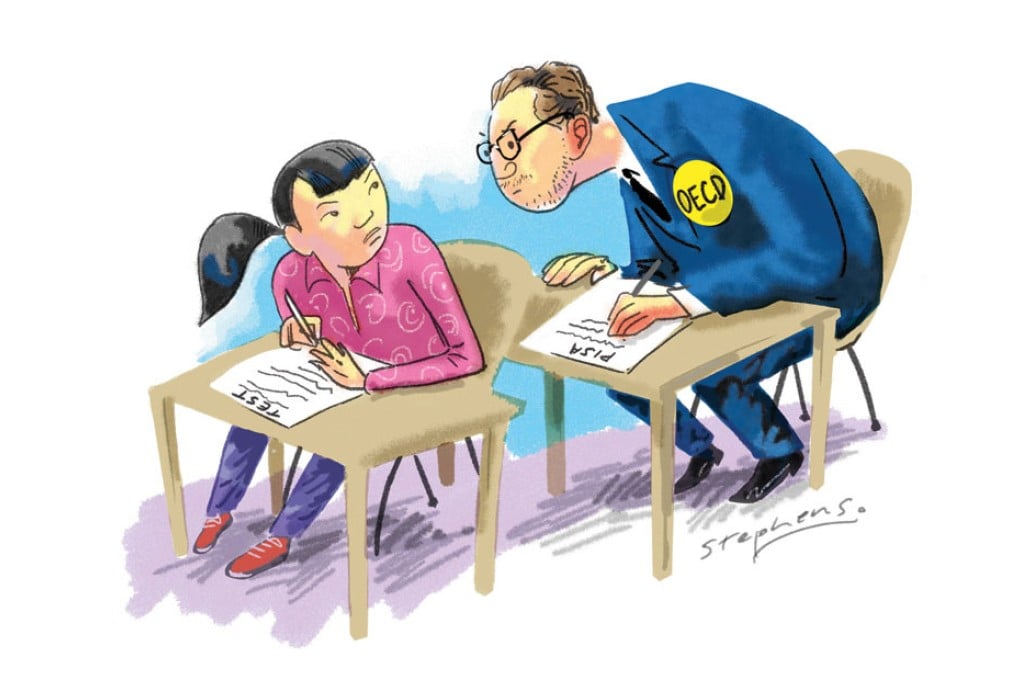Are Chinese students smarter or is testing system rigged in their favour?
Gary Sands points out that while Shanghai 15-year-olds topped global exams in reading, science and maths, their results are not representative of China and should not be meaningfully compared with those of other countries. Dan Steinbock argues, however, that the overall test scores still show students in the US and Europe are falling behind those in emerging economies

The results of the most recent Programme for International Student Assessment (Pisa) again reveal Shanghai's 15-year-old students as the smartest in the world in reading, maths and science, coming out ahead of Hong Kong and Singapore.
The results of the assessment, run by the Paris-based Organisation for Economic Co-operation and Development, seem to confirm the widely held notion that Asian students excel in maths and sciences due to the region's commitment to education and the number of hours spent studying, given that students in Singapore, Hong Kong, Taiwan, South Korea, Macau and Japan all placed in the top 10.
For Western countries, concerns over declining educational standards seem to be confirmed, too. Students in France ranked 25th, Britain 26th, Italy 32nd and Spain 33rd. The US, the world's favourite destination for students, fell in all three categories, placing 24th, 36th and 28th, respectively in reading, maths and science.
Some argue this may herald a new era of creative thinking in Asia. But before we accept the results at face value, we should delve more deeply into Pisa's problematic methodology. The problems are two-fold.
First, instead of choosing one consistent geographical entity, Pisa selects a sample that "represents the full population of 15-year-old students in each participating country or education system", which can include cities, countries or economies. The top three are in fact cities (or city states). Most results came from a sample of scores around nations, but China was allowed to take its sample from select cities.
This is equivalent to allowing London to be the sole representative of Britain or for Boston and its suburbs to represent the US.
And this is how Shanghai, arguably China's smartest city, became the sole representative of education in China, although it only contains a mere 2 per cent of China's population. Shanghai probably became China's smartest city due to several factors, including a per-capita gross domestic product that's twice the national average and by allowing its teachers a high degree of autonomy. And with some of the highest incomes nationally, Shanghai's rich parents can afford the best education as well as expensive after-hours tutoring.